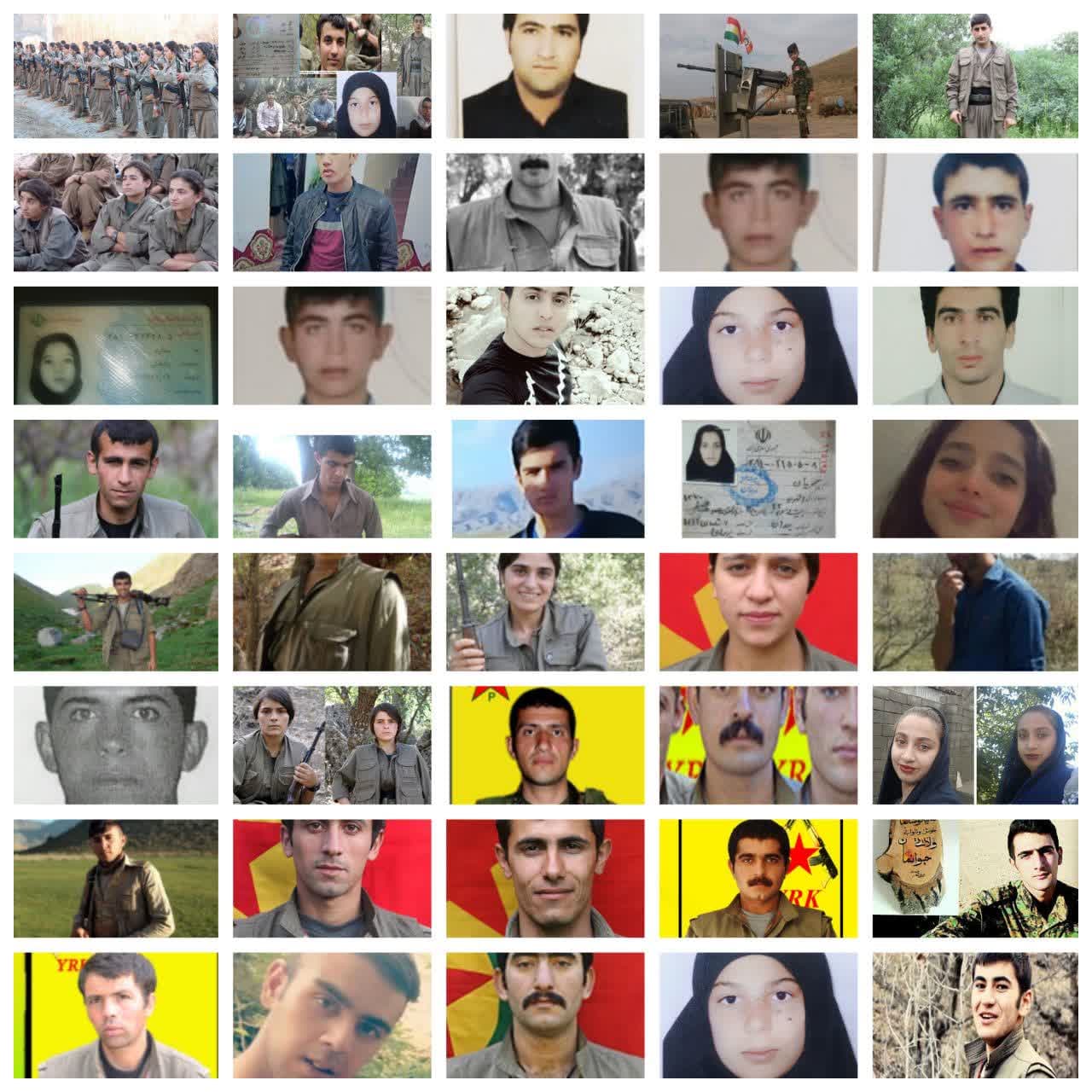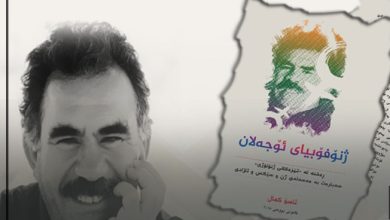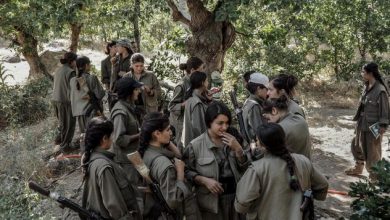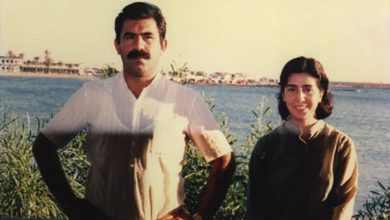August 19th marks World Humanitarian Day, a day when the world honors victims of violence. It is also a stark reminder of the endless suffering of thousands of Kurdish women, children, and teenagers trapped in camps and mountains in the Iraqi Kurdistan Region by armed groups. These groups not only promise freedom but are, in fact, the greatest violators of human rights.
Author: Dr. Zana Sadeqi – Executive Director and Head of International Relations, Iranian Kurdistan Human Rights Watch
Introduction
On August 19, 2003, a massive explosion at the UN headquarters in Baghdad shook the world. In this terrorist attack, 22 UN staff members—including Sérgio Vieira de Mello, the Special Representative of the Secretary-General in Iraq—lost their lives. Since then, the UN has designated this day as World Humanitarian Day, a day to remember the victims and to honor all those who risk their lives on the front lines of humanitarian crises to build a better world.
However, as the world commemorates this day each year, in the Kurdish-populated regions of Iran and Iraq, thousands of women, children, and young people continue to be victims of systematic violence and human rights abuses by Kurdish armed groups. These groups, which have been stationed in the mountains and camps of the Iraqi Kurdistan Region for years, exploit economic and social deprivation to trap Kurdish children, teenagers, and young adults.
This report, on the occasion of World Humanitarian Day, documents these sufferings and the human rights violations perpetrated by armed groups such as the PKK, PJAK, Komala, Democrat, PAK, and Khbat. These groups have not only failed to advance freedom and justice but have themselves become agents of widespread human rights violations.
Abuses of Children’s Rights: The Forgotten Child Soldiers
One of the most flagrant crimes of these groups is the systematic use of children in combat and military training, a direct violation of the Convention on the Rights of the Child and its Optional Protocol on the involvement of children in armed conflict.
Human rights findings by Iranian Kurdistan Human Rights Watch and numerous NGOs in Iran, Iraq, Syria, and Turkey indicate that Kurdish teenagers are lured into the ranks of these groups with false promises or even by force:
- Helia Abdollahi, a girl who fell victim to Komala as a child and experienced bitter days in the Zargwezalah camp. Her escape from the camp is a living testament to Komala’s use of child soldiers and their lies.
- Moein Samadi, a 16-year-old from Marivan, who escaped the grueling conditions just seven months after joining the Democrat group and returned to Iran.
- Dozens of other cases, including those of Setareh Zadesh, Kajal Alipour, and other teenage boys, point to a disturbing trend of child soldier recruitment, with reports of their human rights violations documented on the Iranian Kurdistan Human Rights Watch website. These examples prove that Kurdish armed groups, in clear contradiction to international law, have turned children into tools for their political and military goals.
Violence Against Women: From Promises of Freedom to Torture in Camps
In the propaganda of these groups, women are always presented as “symbols of freedom,” but the reality is quite different: women are the biggest victims of violence, exploitation, and internal group suppression.
- Shadi Qasemi, a woman from Sardasht who was recruited by the Democrat group with promises of money and opportunities, requested to leave after a year of backbreaking work. She was imprisoned in the Democrat group’s internal jail for seven months on charges of treason and subjected to torture, including being burned with an iron.
- Mozhdeh Faramarzi, a woman from Marivan, witnessed the blatant violation of women’s rights within the ranks of the Democrat group, from forced labor to severe restrictions and enforced silence against violence.
- Setareh Zadesh, a victim of child soldiery, was forced to remain in the ranks of PJAK for years and was deprived of her freedom.
These examples provide a clear picture of the double exploitation of women by groups that call themselves “defenders of women’s rights.”
Deceiving Youth with Promises of Migration and Asylum
In recent years, many Kurdish youths have fallen victim to the extensive propaganda of these groups on social media. The promise of migration to Europe, education, or work abroad is a tool used to lure young people into the mountains.
- Shayan Fattahi, a 19-year-old from Nowsud, went to the Komala camp with the promise of migrating to Europe but was met with forced labor and inhumane conditions.
- Milad Ahani, from Saqqez, was attracted to Komala by Instagram advertisements but quickly became familiar with the bitter reality of the camp, returning to Iran in August 2023.
- Kajal Alipour, a girl from Saqqez, joined the PAK group in 2017 with the promise of work in Europe, and after six years of wandering, she returned in 2023.
These accounts show that these groups use the dream of migration to enslave young people.
Imprisonment, Torture, and the Fate of Dissatisfied Members
Eyewitnesses have reported that members who wish to leave these groups face imprisonment, torture, and even death.
- Reza Qazikhani, after two years of membership in PAK, was arrested and tortured for attempting to leave. He was only able to return with the intervention of the Iranian consulate.
- Salah Heidari, a man from Paveh, was forced into membership with the Democrat group and then PJAK. After escaping to Turkey and enduring 14 years in prison, he finally surrendered himself in 2023.
These cases show that these groups do not grant members the right to leave freely and consider departure an act of treason, which violates the fundamental principles of human rights.
Clear Contradiction with International Documents
The actions of these groups are in complete contradiction with the principles of human rights and humanitarian law:
- Convention on the Rights of the Child: The absolute prohibition of the use of individuals under 18 in armed conflicts.
- UN Security Council Resolution 1325: Emphasis on the protection of women in armed conflicts and the prohibition of sexual violence.
- Convention Against Torture: The absolute prohibition of torture and inhumane treatment.
- Universal Declaration of Human Rights: The right to freedom of choice and to leave a group or community.
Despite these documents, the Kurdish armed groups not only fail to comply with international principles but also systematically violate them through their internal policies.
On the occasion of World Humanitarian Day, our duty is not only to remember but also to demand accountability from responsible institutions:
- The UN and international bodies must conduct an independent investigation into the use of child soldiers and violence against women.
- Regional and European governments must stop their financial and political support for these groups.
- Kurdish civil society and intellectuals must courageously stand against the deception of teenagers and the exploitation of women.
- Human rights education and awareness in Kurdish-populated areas must be strengthened to reduce the recruitment of young people by armed groups.
World Humanitarian Day reminds us that in every corner of the world, people sacrifice their lives to save others. At the same time, we must not forget that in the Qandil Mountains and the camps of Kurdish armed groups, hundreds of women, children, and young people remain silent victims.
Remembering the 22 UN victims in Baghdad should commit us to being the voice of today’s victims—those who, in the silence and neglect of the world, are trapped by groups that parade under the banner of freedom but are the greatest violators of human rights.
Today, more than ever, the world must answer this question: How can we celebrate Humanitarian Day while the voices of the victims of Kurdistan are buried in silence?






